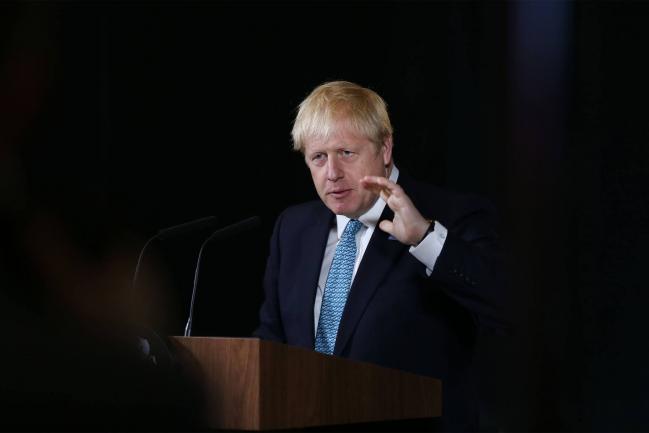(Bloomberg) -- U.K. Prime Minister Boris Johnson will spend the next few weeks pressing the European Union to negotiate a better Brexit deal, his office said, while preparing the country to leave the bloc in case he fails.
A messy no-deal divorce is a scenario that has concerned business leaders and weakened the pound since Johnson won the contest to become Britain’s new leader a week ago. Sterling fell to its lowest level against the dollar in more than two years on Monday.
Johnson will travel to a farm in Wales Tuesday to hear the views of agricultural workers on their hopes for life after leaving the EU as his office said the government will throw itself into negotiations with Brussels.
Speaking before his trip, he said Brexit would allow the U.K. to scrap the EU’s Common Agricultural Policy and export more food and farm produce around the world when his government is free to sign new trade deals outside the EU.
“Once we leave the EU on Oct. 31, we will have a historic opportunity to introduce new schemes to support farming – and we will make sure that farmers gets a better deal," Johnson said. "Brexit presents enormous opportunities for our country, and it’s time we looked to the future with pride and optimism."
Bracing for Impact
Yet the rising mood in the business world is of alarm at the prospect of a the damage a no-deal split could do to the economy, not optimism.
With fewer than 100 days left until the U.K. is due to exit the 28-member bloc on the deadline of Oct. 31, Johnson is tearing up the way Britain’s government operates to ready the country for the potential impact of leaving without an agreement.
More money is being made available for contingency planning, and a mass public information campaign will launch in the weeks ahead to advise businesses and citizens how to prepare.
Johnson has packed his cabinet with pro-Brexit ministers and officials who led the 2016 Vote Leave campaign with him, to ensure every part of the state is geared toward exit day on Halloween.
The prime minister still says he wants a deal with the EU but has two key conditions: the bloc must re-open the Withdrawal Agreement it negotiated last year, and it must agree to scrap the so-called backstop guarantee for the Irish border -- the provision intended to ensure there’s no need for checks on goods crossing the land border with Ireland.
‘Central Scenario’
Johnson has said the backstop is “undemocratic” because it risks locking the U.K. into a trading relationship with the EU indefinitely.
EU leaders have repeatedly said they’re not prepared to revise the deal that Johnson’s predecessor, Theresa May, tried and failed on three occasions to get approved by the U.K. Parliament and that any accord must contain the backstop.
As a result, Johnson sees no point in meeting with them face-to-face, his spokeswoman Alison Donnelly said Monday. “The prime minister will be happy to sit down with leaders when that position changes, but he’s making it clear to everybody he speaks to that that needs to happen,” she said.
While the government would prefer to leave with a deal, Donnelly said, its “central scenario” is to do so without one unless the EU shifts its position.

